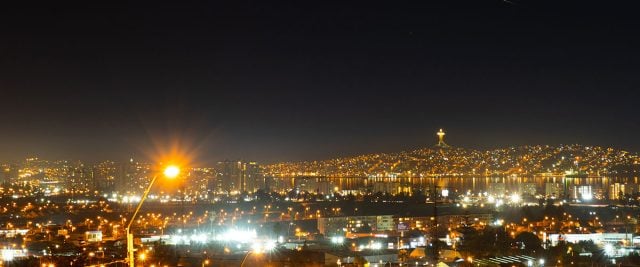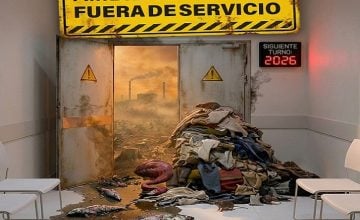Original article: Contaminación lumínica amenaza el cielo astronómico de la Región de Coquimbo
Light Pollution Poses Threat to Coquimbo’s Astronomical Skies
Recognized as one of the leading astronomical hubs in the country, the Coquimbo Region is renowned for the exceptional quality of its skies, enabling the establishment of internationally significant observatories and fostering a robust scientific, educational, and tourism sector.
This privileged environment has turned the area into a reference point for cosmic observation and a strategic site for research. However, this heritage is increasingly at risk due to the sustained rise in light pollution, a phenomenon that directly threatens the natural darkness of the night sky.
This warning comes from Sergio Torres Flores, an astronomer at the University of La Serena (ULS), who emphasizes that protecting this resource is crucial for maintaining Chile’s leadership in the field of astronomy on a global scale.
Torres stated that the scientific work done at ULS encompasses much more than mere data collection, integrating training, technological development, and the responsibility of sharing knowledge with the community.
In this regard, he stressed the importance of community awareness regarding the everyday impact of this science, reminding that «Chile possesses privileged skies that have allowed the establishment of multiple observatories,» generating scientific, educational, and tourism benefits for the region.
In his view, one of the most urgent challenges is to halt the advance of light pollution in La Serena and Coquimbo. This phenomenon not only affects the work of the observatories but also impacts health, disrupts sleep cycles, affects biodiversity, and diminishes the quality of astrotourism.
In this context, the efforts of the project «IluminAconCiencia,» led by astronomer Dr. Marcelo Jaque, are highly regarded. According to Torres, this initiative aims to «raise awareness about the effects of excessive artificial light use, teaching measures such as replacing cold lights with warmer alternatives and utilizing measurement nodes to monitor sky illumination at various points in the region.»
He also emphasized that «the solution is not merely to reduce the brightness of spaces but to apply it appropriately,» noting that directing lights downward and avoiding their dispersion can help reduce unnecessary brightness escaping to the sky while simultaneously lowering energy costs at both municipal and domestic levels when investing in lighting infrastructure.
Finally, Torres reiterated that the presence of observatories in the region not only enhances scientific development but also opens up opportunities for international collaboration and advanced training. For instance, ULS has agreements and graduate programs that strengthen this ecosystem, solidifying the Coquimbo Region as a strategic astronomical reference point for Chile.
El Ciudadano











